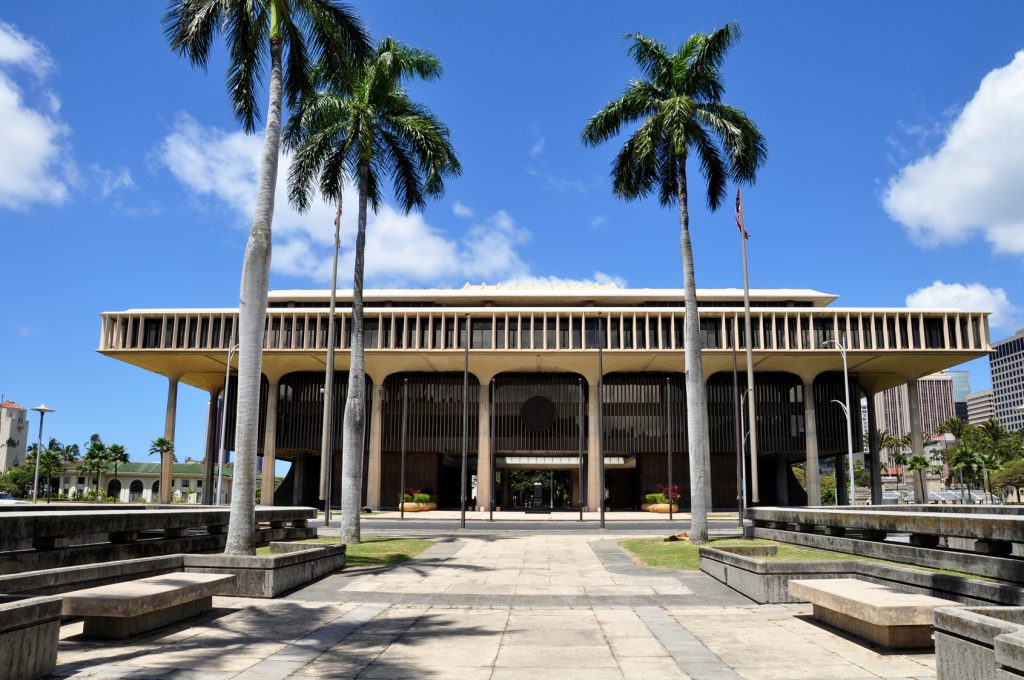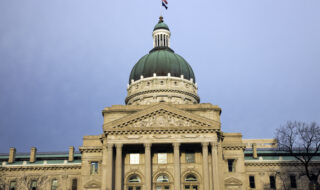Topics:
May 24, 2024 Last Edit: January 9, 2025
2024 End-of-Session Report on the Hawaii Legislature
NFIB State Director Michael Iosua reports from Honolulu on the activity of the Hawaii State Legislature in 2024
Unlike many recent years, the 2024 legislative session was not dominated by the typical issues. Instead, much of this year’s legislative session revolved around the Maui wildfires, which devastated the island in August, and some of the after-effects of this event, including critical issues such as Maui wildfire recovery plan, insurance stabilization, securitization for electric utility infrastructure and housing recovery. Apart from the wildfire related bills, the Legislature also proposed bills concerning recreational marijuana and hazard pay for state workers who physically reported to work during the COVID19 pandemic, as well as income tax relief and bio-security bills intended to protect the state’s delicate natural resources.Victory on State Income Tax Relief
NFIB helped lobby for passage of House Bill 2404, a historic tax reduction bill which incrementally increases standard deduction amounts and widens income tax brackets for specific taxable years beginning after 12/31/2023. The measure awaits Gov. Josh Green’s signature.Victories on Helping Stop Harmful Legislation
Family Leave- HB 1658/SB 2046 – Family Leave Requires DLIR to administer a family leave insurance program. Extends the family leave period to 16 weeks and eliminates the 100-employee threshold for applicability. HB 1658 and SB 2046 were not scheduled for hearing.
- HB 1659/SB 2047 – Paid Sick Leave Requires employers to provide a minimum amount of paid sick leave to employees to care for themselves or an ill family member and supplemental paid sick leave to employees with public health emergency conditions. These bills were not scheduled for hearing.
- HB 1768/SB 2474 – Family Leave Requires DLIR to administer a family leave insurance program. Extends the family leave period to 16 weeks and eliminates the 100-employee threshold for applicability. HB 1768 was not scheduled for hearing; SB 2474 failed to meet the second lateral deadline.
- HB 2552/SB 2930 – Employee Benefits Extends the family leave period for up to eight additional weeks for employees when the birth of a child requires them to stay in a neonatal intensive care unit and requires the Civil Rights Commission to amend its rules to include neonatal care as a related medical condition. The WAM committee did not schedule either bill. Accordingly, HB 2552 failed to meet the second crossover deadline and SB 2930 failed to meet the first crossover deadline.
- HB 2757 – Paid Family Leave Requires DLIR to establish a family and medical leave insurance program and begin collecting payroll contributions to finance payment of benefits, with certain eligibility requirements and employee protections under the program. HB 2757 was not scheduled for hearing by the FIN committee and failed to meet the first crossover deadline.
- HB 1638 – County Labor Standards Authorizes the counties to require employers to disclose information regarding its employees’ wages, benefits, hours, and employment status and deny, revoke, or suspend a building permit application for violating laws relating to wages, benefits, hours, and employment status, under certain conditions. The bill crossed over to the Senate, but was not scheduled for hearing by the GVO/LBT committees.
- HB 1785/SB 2188 – Unemployment Benefits Allows striking workers to be eligible for unemployment benefits. HB 1785 was not scheduled for hearing; SB 2188 was deferred by the LBT committee.
- SB 2663 – Unemployment Benefits Authorizes unemployment benefits to employees who are not working due to a strike or other labor dispute if the HLRB determines that the employer is failing to make good faith efforts to negotiate. SB 2663 was not scheduled for hearing.
- SB 2784 – Tipped Employees Repeals the authority of employers to pay tipped employees less than the minimum wage. The LBT committee deferred this measure.
- SB 2940 – Labor Establishes provisions for minimum pay for employees who have canceled shifts or reduced work hours at a business establishment with fifty or more employees. SB 2940 was not scheduled for hearing by the LBT committee.
- SB 2941 – Fair Scheduling Establishes provisions for unemployment benefit rights when claimants are unemployed due to a strike or industrial controversy. SB 2941 was not scheduled for hearing.
- HB 2081 – Government Imposes a per-day penalty for nonpayment of TAT. Amends the transient accommodation tax rate. Requires a $20 transient accommodation tax to be levied per night for each furnishing of transient accommodations in exchange for points, miles, or other amounts provided through a membership, loyalty, or rewards program. Appropriates funds to DLNR for protection, management, and restoration of the State’s natural resources. HB 2081 crossed over to the Senate but was not scheduled for hearing by the EET/WTL committees.
- SB 2357 – Green Environmental Fees Establishes a Green Environmental Fee Program that requires certain users to purchase an annual license for the use of a state beach, park, forest, trail, or other natural area on state land. SB 2357 was not scheduled for hearing.
- SB 2012 – Online Privacy for Children Requires a business that provides an online service to be accessed by children to comply with certain data privacy requirements, complete a data protection impact assessment which would be available to the Attorney General and prevents the business from taking certain proscribed actions. SB 2012 was deferred by the CPN/EET committees.
- HB 1668/SB 2581 – Relating to Privacy Establishes provisions allowing for consumers to request certain data brokers or users to delete any personal information related to 4 the consumer. HB 1668 was deferred by the HET committee; SB 2581 was not scheduled for hearing.
- SB 2695 – Privacy Requires a business that provides an online service to be accessed by children to comply with certain data privacy requirements, complete a data protection impact assessment which would be available to the Attorney General and prevents the business from taking certain proscribed actions. This bill crossed over to the House but was not scheduled for hearing by the JHA committee.
- HB 1716 – Theft Creates the offense of organized retail theft and a task force to study offense. HB 1716 was not scheduled for hearing by the JHA committee.
- HB 2477 – Commercial Ocean Recreation Operations Specifies that the Department of Land and Natural Resources shall issue all new commercial use permits for commercial ocean recreation activity in an ORMA that are not renewals or reissuances by public auction. Revises provisions relating to boating and ocean recreation fees and permits. NFIB was able to work with the WTL to ensure the bill was not scheduled for hearing. The bill failed to meet the second lateral deadline.
- HB 2536 – Single-Use Plastics Prohibits certain businesses from using, selling, or distributing disposable or single-use food ware and beverage service items after January 1, 2025. HB 2536 failed to meet the first crossover deadline.
- SB 2059 – Accessibility Requires a retail establishment with an employee toilet facility to allow a customer with certain medical conditions to use that restroom during normal business hours, under certain conditions. Exempts a retail establishment and employees from civil liability for use of the restroom. This bill was not scheduled for hearing.
- SB 2784 – Tipped Employees Repeals the authority of employers to pay tipped employees less than the minimum wage. This bill was deferred by the LBT committee.
- SB 2877 – Tip Credit SB 2877 abolishes the tip credit. The bill was not scheduled for hearing.
- SB 3249 – Currency Requires retail merchants to accept cash payments. This bill was not scheduled for hearing.
- SB 2933 – Environment SB 2933 proposes an amendment to Article I of the constitution of the state of Hawaii to recognize and protect the inherent and inalienable right of all people to clean water and air, a healthful environment and climate, healthy ecosystem, and beaches. The bill failed to meet the first crossover deadline.
Defeat
Despite NFIB’s intense lobbying efforts, Senate Bill 2715 passed the Legislature and was sent to the governor, where it awaits action. SB 2715 makes it unlawful for an employer to discharge, discipline, or otherwise penalize or threaten any adverse employment action against an employee because the employee declines to attend or participate in an employer-sponsored meeting that communicates the opinion of the employer about political matters, or declines to receive or listen to a communication from the employer that communicates the opinion of the employer about political matters. Defines “employee” and “political matters”.Wrap-Up
The 2024 Legislative Session for the State of Hawai?i convened on January 17 and adjourned May 3. The governor has 45 days to sign, veto or allow a bill to become law without his signature. The deadline to veto is July 10 and an intent to veto list must be provided by the Governor by June 25. During the session a total of 2,677 bills were introduced, with about 269 bills passing both chambers and being transmitted to the governor for his approval.A Look Ahead
For the 2025 legislative session, NFIB expects many of the same priority issues to emerge once again. Our legislative team will continue to engage with lawmakers on critical policy issues.
State:
Get to know NFIB
NFIB is a member-driven organization advocating on behalf of small and independent businesses nationwide.
Related Articles

December 11, 2025
Indiana Legislative Update – December 2025
Learn more about what’s happening in Indianapolis
Read More


December 11, 2025
Take Action: Unemployment for Employees on Strike
Tell your lawmakers no increase in unemployment benefits for employed peopl…
Read More


December 11, 2025
Reminder: Michigan Minimum Wage to Increase in 2026
The min. wage is increasing to $13.73 on January 1
Read More








